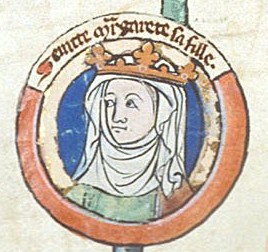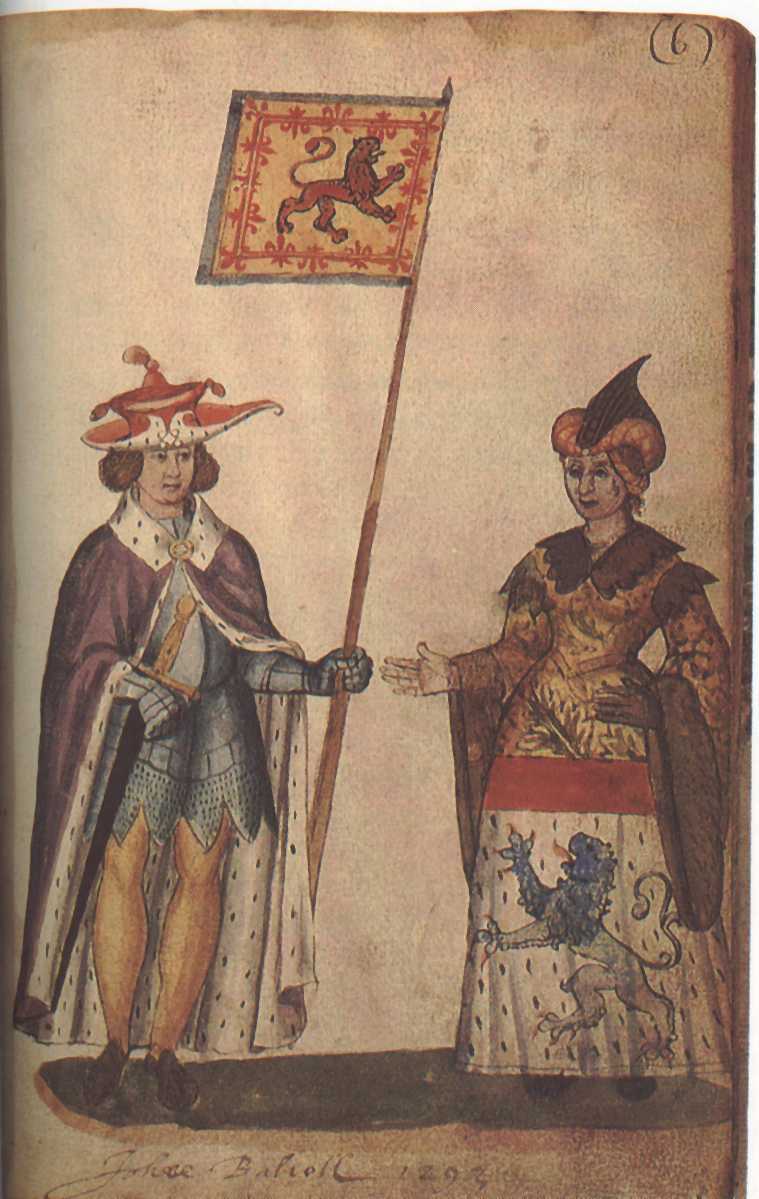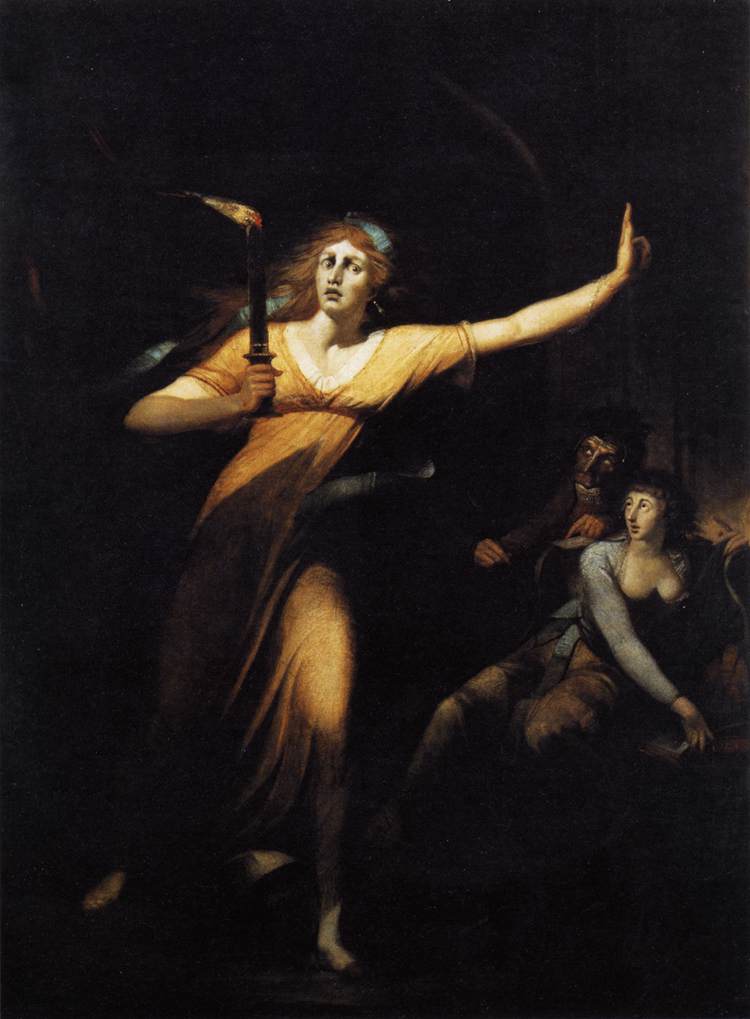|
Gruoch
Gruoch ingen Boite () was a Scottish queen, the daughter of Boite mac Cináeda, son of Cináed II. She is most famous for being the wife and queen of MacBethad mac Findlaích (Macbeth). The dates of her life are uncertain. Life Gruoch is believed to have been born 1015 or before, the daughter of Boite mac Cináeda; her mother's name is not known. Before 1032 Gruoch was married to Gille Coemgáin mac Maíl Brigti, Mormaer of Moray, with whom she had at least one son, Lulach mac Gille Coemgáin, later King of Scots. Gille Coemgáin was killed in 1032, burned to death in a hall with 50 of his men. The next year one of her male relatives, probably her only brother, was murdered by Malcolm II. After the death of Gille Coemgáin, Gruoch married her husband's cousin, Macbeth. Macbeth may have been responsible for Gille Coemgáin's death, and certainly benefited from it, becoming Mormaer of Moray himself. It is unclear if Macbeth married Gruoch as an ally succoring the widow of a kin ... [...More Info...] [...Related Items...] OR: [Wikipedia] [Google] [Baidu] |
Macbeth Of Scotland
Macbeth ( – 15 August 1057) was King of Scots from 1040 until his death. He ruled over the Kingdom of Alba, which covered only a portion of present-day Scotland. Little is known about Macbeth's early life, although he was the son of Findláech of Moray and may have been a grandson of Malcolm II. He became Mormaer of Moray – a semi-autonomous province – in 1032, and was probably responsible for the death of the previous mormaer, Gille Coemgáin. He subsequently married Gille Coemgáin's widow, Gruoch, but they had no children together. In 1040, Duncan I launched an attack into Moray and was killed in action by Macbeth's troops. Macbeth succeeded him as King of Alba, apparently with little opposition. His 17-year reign was mostly peaceful, although in 1054 he was faced with an English invasion, led by Siward, Earl of Northumbria, on behalf of Edward the Confessor. Macbeth was killed at the Battle of Lumphanan in 1057 by forces loyal to the future Malcolm III. He w ... [...More Info...] [...Related Items...] OR: [Wikipedia] [Google] [Baidu] |
Macbeth, King Of Scotland
Macbeth ( – 15 August 1057) was King of Scots from 1040 until his death. He ruled over the Kingdom of Alba, which covered only a portion of present-day Scotland. Little is known about Macbeth's early life, although he was the son of Findláech of Moray and may have been a grandson of Malcolm II. He became Mormaer of Moray – a semi-autonomous province – in 1032, and was probably responsible for the death of the previous mormaer, Gille Coemgáin. He subsequently married Gille Coemgáin's widow, Gruoch, but they had no children together. In 1040, Duncan I launched an attack into Moray and was killed in action by Macbeth's troops. Macbeth succeeded him as King of Alba, apparently with little opposition. His 17-year reign was mostly peaceful, although in 1054 he was faced with an English invasion, led by Siward, Earl of Northumbria, on behalf of Edward the Confessor. Macbeth was killed at the Battle of Lumphanan in 1057 by forces loyal to the future Malcolm III. He was bur ... [...More Info...] [...Related Items...] OR: [Wikipedia] [Google] [Baidu] |
List Of Scottish Consorts
The consorts of the monarchs of Scotland bore titles derived from their marriage. The Kingdom of Scotland was first unified as a state by Kenneth I of Scotland in 843, and ceased to exist as an independent kingdom after the Act of Union 1707 when it was merged with the Kingdom of England to become the Kingdom of Great Britain. The early history of Scotland is confused and often obscure, due largely to information given by the sources of the time and after, which are often contradictory, vague, and lacking in detail. Details of the kings prior to Malcolm III are sparse, and the status of two – Giric and Eochaid – dubious; details of their wives are almost non-existent. Thus, it is practically impossible to construct a list of consorts of Scotland prior to the accession of Macbeth, whose wife Gruoch is well-documented and somewhat notorious. House of Moray Although a few details of earlier queens consort are known – for example, Duncan I was married to a woman named in on ... [...More Info...] [...Related Items...] OR: [Wikipedia] [Google] [Baidu] |
Boite Mac Cináeda
Boite mac Cináeda ("Boite son of Kenneth"; also, ''Bodhe'', ''Boedhe'', etc.; d. 1058) was a Scottish prince, son of either King Kenneth II of Scotland (Cináed mac Maíl Coluim) or King Kenneth III of Scotland (Cináed mac Duib).According to the Oxford Dictionary of National Biography entry oKenneth II(2004, retrieved 2020-02-23), "Boite mac Cinaeda was probably another son of Kenneth II (rather than a son of Kenneth III), but possibly born to a different mother han Malcolm II He was the father of Gruoch of Scotland and friend to Findláech of Moray, Macbeth of Scotland's father. He arranged the marriage of Macbeth and Gruoch in 1032, which permitted Macbeth to assume the throne of Scotland in 1040. Later, he was behind the short-lived ascension of his grandson, Lulach Lulach mac Gille Coemgáin ( Modern Gaelic: ''Lughlagh mac Gille Chomghain'', known in English simply as Lulach, and nicknamed Tairbith, "the Unfortunate" and Fatuus, "the Simple-minded" or "the Foolish"; be ... [...More Info...] [...Related Items...] OR: [Wikipedia] [Google] [Baidu] |
Gille Coemgáin Of Moray
Gille Coemgáin or Gillecomgan was the King or Mormaer of Moray, a semi-autonomous kingdom centred on Inverness that stretched across the north of Scotland. Unlike his two predecessors, he is not called ''King of Scotland'' in his death notice, but merely Mormaer. This has led to some speculation that he was never actually the ruler of Moray, but merely a subordinate of Mac Bethad mac Findláich. (Hudson p. 136). In 1020, he participated in the killing of his uncle Findláech, the father of MacBeth. The Annals of Ulster (s.a. 1032) reports that Gille Coemgáin was burned to death, together with 50 of his men. The perpetrators are not mentioned in any sources. From circumstances, two candidates have been proposed to have led the atrocity: Malcolm II of Scotland or Mac Bethad, who then became the only ruler of Moray. Both men were Gille Coemgáin's cousin, and both had reason to want him dead. Gille Coemgáin is believed to have killed his cousin Dúngal mac Cináeda, the ... [...More Info...] [...Related Items...] OR: [Wikipedia] [Google] [Baidu] |
Malcolm II
Máel Coluim mac Cináeda ( gd, Maol Chaluim mac Choinnich, label=Modern Scottish Gaelic; anglicized Malcolm II; c. 954 – 25 November 1034) was King of Scots from 1005 until his death. He was a son of King Kenneth II; but the name of his mother is uncertain. The Prophecy of Berchán says that his mother was a woman of Leinster and refers to him as ''Forranach'', "the Destroyer".. In contrast, Frederic Van Bossen, a historian from the 17th century, who spent many years accessing many private libraries throughout Europe states his mother was Queen Boada, the daughter to Constantine and the granddaughter to an unnamed Prince of Norway. To the Irish annals which recorded his death, Malcolm was ''ard rí Alban'', High King of Scotland. In the same way that Brian Bóruma, High King of Ireland, was not the only king in Ireland, Malcolm was one of several kings within the geographical boundaries of modern Scotland: his fellow kings included the king of Strathclyde, who ruled much ... [...More Info...] [...Related Items...] OR: [Wikipedia] [Google] [Baidu] |
Lulach Of Scotland
Lulach mac Gille Coemgáin ( Modern Gaelic: ''Lughlagh mac Gille Chomghain'', known in English simply as Lulach, and nicknamed Tairbith, "the Unfortunate" and Fatuus, "the Simple-minded" or "the Foolish"; before 1033 – 17 March 1058) was King of Scots between 15 August 1057 and 17 March 1058. Lulach was the son of Gruoch of Scotland, from her first marriage to Gille Coemgáin, Mormaer of Moray, and thus the stepson of Macbeth (Mac Bethad mac Findlaích). Following the death of Macbeth at the Battle of Lumphanan on 15 August 1057, the king's followers placed Lulach on the throne. He has the distinction of being the first king of Scotland of whom there are coronation details available: he was crowned, probably on 8 September 1057 at Scone. Lulach appears to have been a weak king, as his nicknames suggest, and ruled only for a few months before being assassinated and usurped by Malcolm III. However, it is also plausible his nicknames are the results of negative propaganda, and were ... [...More Info...] [...Related Items...] OR: [Wikipedia] [Google] [Baidu] |
King Of Scots
The monarch of Scotland was the head of state of the Kingdom of Scotland. According to tradition, the first King of Scots was Kenneth I MacAlpin (), who founded the state in 843. Historically, the Kingdom of Scotland is thought to have grown out of an earlier "Kingdom of the Picts" (and later the Kingdom of Strathclyde that was conquered in the 11th century, becoming part of the new Kingdom of Scotland) though in reality the distinction is a product of later medieval myth and confusion from a change in nomenclature i.e. ('King of the Picts') becomes (King of Alba) under Donald II when annals switched from Latin to vernacular around the end of the 9th century, by which time the word in Scottish Gaelic had come to refer to the Kingdom of the Picts rather than Britain (its older meaning). The Kingdom of the Picts just became known as the Kingdom of Alba in Scottish Gaelic, which later became known in Scots and English as ''Scotland''; the terms are retained in both languages ... [...More Info...] [...Related Items...] OR: [Wikipedia] [Google] [Baidu] |
Lady Macbeth
Lady Macbeth is a leading character in William Shakespeare's tragedy ''Macbeth'' (). As the wife of the play's tragic hero, Macbeth (a Scottish nobleman), Lady Macbeth goads her husband into committing regicide, after which she becomes queen of Scotland. After Macbeth becomes a murderous tyrant, she is driven to madness by guilt over their crimes, and commits suicide offstage. Lady Macbeth is a powerful presence in the play, most notably in the first two acts. Following the murder of King Duncan, however, her role in the plot diminishes. She becomes an uninvolved spectator to Macbeth's plotting and a nervous hostess at a banquet dominated by her husband's hallucinations. Her sleepwalking scene in the fifth act is a turning point in the play, and her line "Out, damned spot!" has become a phrase familiar to many speakers of the English language. The report of her death late in the fifth act provides the inspiration for Macbeth's " Tomorrow and tomorrow and tomorrow" speech. ... [...More Info...] [...Related Items...] OR: [Wikipedia] [Google] [Baidu] |
Lulach
Lulach mac Gille Coemgáin ( Modern Gaelic: ''Lughlagh mac Gille Chomghain'', known in English simply as Lulach, and nicknamed Tairbith, "the Unfortunate" and Fatuus, "the Simple-minded" or "the Foolish"; before 1033 – 17 March 1058) was King of Scots between 15 August 1057 and 17 March 1058. Lulach was the son of Gruoch of Scotland, from her first marriage to Gille Coemgáin, Mormaer of Moray, and thus the stepson of Macbeth (Mac Bethad mac Findlaích). Following the death of Macbeth at the Battle of Lumphanan on 15 August 1057, the king's followers placed Lulach on the throne. He has the distinction of being the first king of Scotland of whom there are coronation details available: he was crowned, probably on 8 September 1057 at Scone. Lulach appears to have been a weak king, as his nicknames suggest, and ruled only for a few months before being assassinated and usurped by Malcolm III. However, it is also plausible his nicknames are the results of negative propaganda, and wer ... [...More Info...] [...Related Items...] OR: [Wikipedia] [Google] [Baidu] |
Dunsinane (play)
''Dunsinane'' is a 2010 play by David Greig. It premiered in a Royal Shakespeare Company production at the Hampstead Theatre from 10 February to 6 March 2010, directed by RSC Associate Director Roxana Silbert and with leads including Siobhan Redmond and Jonny Phillips. Plot The narrative is formed by the events following the defeat of Macbeth by Malcolm and an English army in the Battle of Dunsinane at the end of William Shakespeare’s play ''Macbeth''. In Greig’s version, Lady Macbeth is known as Gruach. Having outlived her second husband Macbeth, after she had Macbeth kill her first husband, Gruach continued to enforce the Moray claim to the throne via herself and her son by her first marriage. The playwright parallels the attempted nation-building by the English leader Siward and the continued bloodshed against the English occupying forces with contemporary events in Afghanistan and Iraq. He also includes the Shakespearean characters MacDuff and Malcolm, as well as in ... [...More Info...] [...Related Items...] OR: [Wikipedia] [Google] [Baidu] |
Mormaer Of Moray
The title Earl of Moray, Mormaer of Moray or King of Moray was originally held by the rulers of the Province of Moray, which existed from the 10th century with varying degrees of independence from the Kingdom of Alba to the south. Until 1130 the status of Moray's rulers was ambiguous and they were described in some sources as "''mormaers''" (the Gaelic term for "Earl"), in others as "Kings of Moray", and in others as " Kings of Alba". The position was suppressed by David I of Scotland some time after his defeat of Óengus of Moray at the Battle of Stracathro in 1130, but was recreated as a feudal earldom by Robert the Bruce and granted to Thomas Randolph, 1st Earl of Moray in 1312. The title has subsequently been created several times in the Peerage of Scotland. It has been held by Clan Stewart since the 16th century, when James Stewart, illegitimate son of James V, was granted the title. History of the Earldom of Moray The province of Moray's importance as part of th ... [...More Info...] [...Related Items...] OR: [Wikipedia] [Google] [Baidu] |





